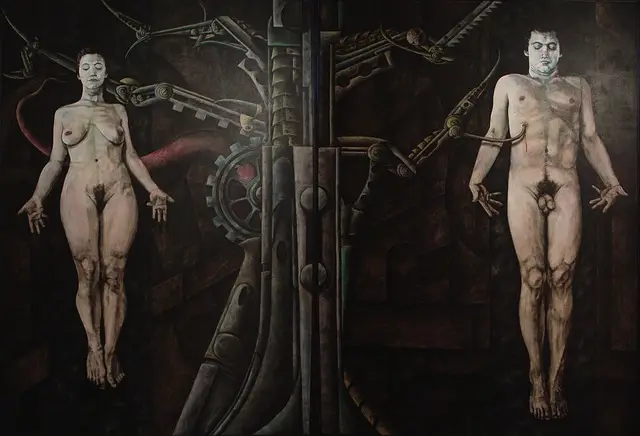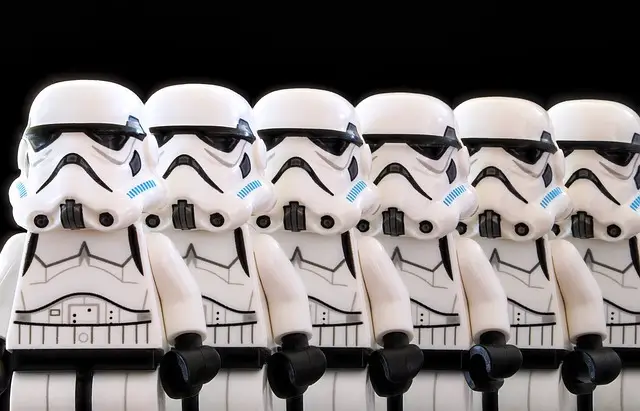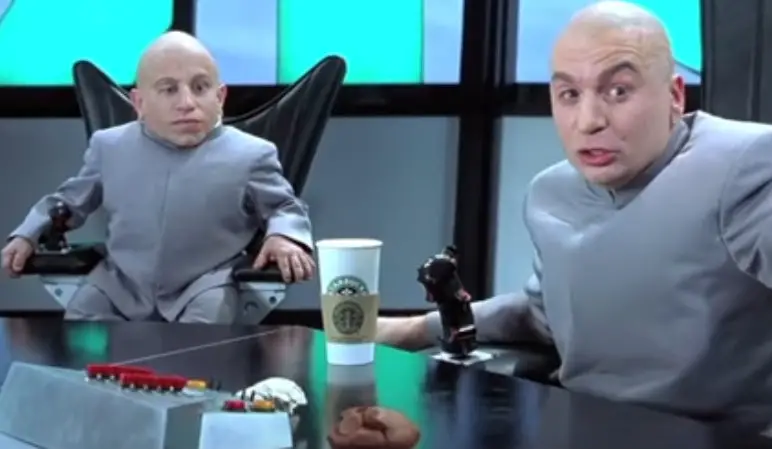Human Cloning and Why You Will Want It

Two medical technologies are approaching the market that together might just become as utterly transformative to human civilisation as the car and computer. More so, perhaps.
These technologies are cloning and artificial wombs. Together they could allow anyone who can afford it, and it may not cost any more than a car or computer, to raise their very own clone of their very own self.
Clones in Science Fiction
Science fiction has already dealt with some possibilities arising from human cloning but I would argue they have all done so quite poorly. Science fiction, like all fiction, suffers from what I call dramatic bias. Fiction must be entertaining and so it must be dramatic in some way. This drama comes at the cost of realism.
Clones were a part of the Star Wars story but only as a secret army hatched for the purposes of a coup d’etat. No ordinary people seemed to have them, even though they did have personal robot servants.
Cloning was a key part of Brave New World, but only as a horribly totalitarian dystopia, where all human reproduction was the global monopoly of a demented technocratic dictatorship.

In reality only weird regimes like the DPRK will use human cloning in anything like the way presented by those two stories. For the rest of humanity, human cloning will be picked up, or dropped by, private interests just like you and me.
Human cloning will be options that private enterprises will present to the market, just as they did with the car and the computer. Each one of us will make our own choice in whether or not to take up these offers based on our own individual desire.
The Cloning Supply
The technologists are still working on the supply. Dolly the sheep is 30 years in the past at the time of writing. Artificial wombs may be some ways off yet, but premature babies are already being partly carried to term by incubators.
I am not a technologist in the trade, so I am not going to discuss the development of the technology. Nor will I make any predictions about when exactly the technology will come to market. Your humble servant Solar Cross is not qualified to make such predictions.
For now let us take it as read that the technical and legal issues will one day be solved sufficiently so that the supply can reach the market. In this article we will not discuss the supply but rather the demand.
The Demand for Cloning
A technologist I may not be but, as a market participant and a thoughtful consumer, I am as entitled as any to say something about the demand for such technology.
The supply is on the way, but where will the demand be? We might think that at first it will not be popular. It might be the sort of thing that Austin Power’s nemesis Dr Evil would want, but not nice ordinary workaday normies. Why raise a clone of yourself instead of a natural child? Is that not weird and creepy?

Credit: TM & © Warner Bros. (1999)
Once upon a time, one might also have asked why have a car when you could just walk on natural legs. One might also have asked who would want a computer, when you can just use your natural brain?
It is not really an “either or” scenario, people could do both, just as they might have a car but also walk.
“I think there is a world market for maybe five computers,”
Thomas Watson, president of IBM, in 1943
The technologists who bring these things to market are often so focused on creating the supply that they have very little idea of just how huge the demand could be, once the supply is available. See the above quote on the future demand for computers.
At present those working on these technologies may think cloning will only be of use for a few wealthy customers wanting spare organs for a marginal increase in life expectancy.
They may also think artificial wombs will have little use besides helping a minority of couples with deeply damaged reproductive capability achieve their reproductive desires.
It is apparent to me that this is under-estimating the most powerful motivator in human (and non-human) history, the deep biological instinct to pass on one’s genes for another generation.
Blood is Thicker Than Water
It is no mystery why parents in general will sacrifice everything, even their lives, for their own genetic offspring but are much less so inclined to do the same for those less related. The number of those that stop by orphanages to adopt genetic foreigners is dwarfed by the number that determine to pass on their own genes through mating.
The love of a mother for her own child has been romanticised and mysticised for millennia, and still is today. In the light of the Darwinian world view this love is easily seen as an highly adaptive behaviour for a DNA reproducing machine.
That is the meaning behind the common observation that “blood is thicker than water”.

Relative Genetic Stakes
The trick is that a natural child carries only half the genes of each of its natural parents. All the power of a parent’s love for her child is arising for just a 50% genetic stake in each one.
Each clone however will have 100% genetic stake for its parent. What will be the power of a mother or father’s love for a cloned child then? Twice as strong? I believe it will be.
Clone children may not be a thing yet but there already exists a close natural equivalent in identical twins. An identical twin is to a normal sibling what a clone child will be to a normal child. The identical twin has a 100% genetic stake in his twin, whereas a non-twin has a 50% genetic stake in his sibling.

It is well documented that the strength of the emotional bond between twins is far beyond that of normal siblings. And from a Darwinian point of view that makes perfect sense. A 100% genetic stake is twice as valuable, in reproductive terms, as a 50% stake. That will be the same for clones too.
Of course there will be an age gap between the parent of a clone and his or her progeny. Their life experiences then will be more different than is typical with twins. Seniority based on age will also differ. Twins are equal partners in terms of authority. Whereas a clone will be a dependent and junior to the parent of a clone.
While the social dynamics between clone and parent will not be the same as that of identical twins, we can confidently infer however that the strength of bond between a clone and parent will be equivalently strong as compared to the normal relationship between parent and progeny.
Desire Drives Demand
It should be self-evident that demand for a good or service rises from desire. We buy food because we hunger. Likewise, we work because we want money. We seek shelter because we want a secure place to sleep and store our treasured possessions. We mate because we have an instinct to pass on our genes.
Ultimately, passing on genes is the purpose behind the sex drive. There should hardly be a need to sell you on the power of the human sex drive. From Helen of Troy to the fortunes spent on fashion, dating and other reproductive rituals.
For all of human history all that desire was generated just to secure a 50% genetic stake in each new instance of humanity. What happens when technology allows us, through cloning, to get a 100% stake with each instance?
This is the first and most powerful indicator that perhaps when human cloning will become available the demand for it will range far beyond a niche market.
No One Wants Anything Until They Do
It may be counter argued at this point that almost no one is signalling any demand for human cloning at this time. Furthermore there are already legal prohibitions against doing it too. An example of which is the Human Reproductive Cloning Act 2001 (UK).
We often think of politicians as crooks but for all that they are still more like regular folks than not. If their first instinct is to ban, not support or tolerate, human cloning then that is probably a good indicator of how the general public’s first instinct will be too. Certainly there is not a great popular demand for the repeal of such legislation, not yet anyway.
If I had asked people what they wanted, they would have said faster horses.
Attributed to Henry Ford (probably incorrectly)
I suspect if you asked the average person back in the late 19th century if they would ever want a horseless carriage they would have said no. Ask again in the 1950s and you would get a different answer.
When faced with the new and unknown it is prudent to err on the side of caution. New products and services are usually first met with skepticism and even hostility. Then as they become less new and the advantages (and disadvantages) of the technology become more apparent, that fear and loathing gets dialed back. Often then to make way for desire.
At first, there will be some squeamishness about human cloning. A few bolder people will do it, perhaps extra-legally, and then the flood gates will open.
The powerful animal instinct to pass on one’s genes will connect with the cognitive understanding that a clone is a 100% genetic stake, not a 50% stake as with a normal child. Then in the presence of it being an actually available option from a real service provider, people will want it, and they will want it hard. The same as they now want (also unnatural) cars, computers and social media.
There are many other more niche market demands for cloning that occur to me too. This is what we shall contemplate now.
Other Niche Demands for Cloning
I have asserted above that when it becomes available even the most ordinary person with normal fertility could desire a clone just on the basis of genetic stakes. I stand by this prediction but those that have normal reproduction as an option are unlikely to be the first through the breach.
The following are those demographic niches that will be first to take the plunge because cloning also solves a problem they can not do another way.
The Infertile
The most obvious niche demand for human cloning would be from the same people who, due to fertility issues, pursue invitro fertilisation, surrogacy and adoption today.
Old Maids and Cat Ladies
It so happens that a quite a number of women fail to mate within their window of fertility. Sometimes they are unlucky in love. Other times they are too caught up in career and study to get it done in time. Then too late their maternal instincts kick in and they are caught having to channel them into parenting “fur babies” instead.
Cloning for them would be another chance to do their Darwinian duty.
Homosexuals
Who knows why it happens but a number of people grow up with sexual instincts unlikely to result in progeny. These would be homosexuals but also some other non standard sexuality. Some number of these may yet still desire to pass on their genes anyway. Cloning would solve that need.
Incels
I suppose the male equivalent of the old maid would be the incel. The issue here is not so much leaving it too late as being unable to secure a reliable reproductive partner at any age. The failure here may be the consequence of hyper-gamy or whatever else but cloning would be a solution in any case.
The Mis-parented and the Second Chancers
The previous market niches are obvious enough but this one is much less so. There are people out there that did not get the upbringing they deserved or needed. They may have had a condition like autism, celiac disease or lactose intolerance that was overlooked or neglected which resulted in poorer life outcomes than could have been the case otherwise. Otherwise their parents may have been abusive or neglectful.
Normal children are always a chance to do better next time but normal children made by combining with another’s DNA are another roll of the dice again. The lessons learned about autism or dietary requirement may not apply and new ones needed instead.
Making and raising a exact genetic clone would present an opportunity to exactly correct the mistakes of one’s own parents. And so to see how one could have turned out with a better start. It would be like being one’s own parent.
The Impact of Common Human Cloning on Civilisation
As technology gives, so does it take. There can be no doubt by now the disruptive effects of technological developments, especially when widely adopted. We can see what the car and computer have done. Human cloning would surely be as profoundly disruptive.
Runaway Individualism
We very nearly live in a world now where one can live the life of a complete hermit without any loss in standard of living. Work can be done remotely, as can shopping, study and entertainment. The one thing we must do within intimate contact with another is raise a family.
Necessity is not just the mother of invention, it is also the mother of co-operation. Our species evolved to become so socially adept in no small part for the material advantages that come from co-operation, from mutual aid to martial alliance.
Technology has been eroding that need for intimate company for some time already. When people are less dependent on friends and family for survival then they are less willing to endure the compromises on personal autonomy that go with that.
So it was that the clan split up into the extended family which in turn split up into the nuclear family. Today, in the west at least, single person households are steadily growing in number.
Splitting the Nuclear Family
Perhaps the last remaining prop to the nuclear family is that it remains that to fulfill one’s reproductive duty one must still co-operate intimately with another to conceive if not always to nurture.
Cloning and artificial wombs would remove even that last constraint, splitting even the nuclear family to the last.
Genetic Silos and Speciation
It is an often overlooked fact of biology that speciation is the norm for sexually reproducing critters. Despite the holy view of humanity as a sacred whole, speciation has always been part of our story too.
In pre-history there were homo neanderthalis, floresiensis, denisova and who know how many undiscovered others. In our own day we have the various primary races and their hybrids such as turks, mestizo and african-americans.
What happens to evolution and speciation when the majority of people reproduce through cloning instead of sex? On the one hand every sexual event is an hybridisation, and hybridisation is one path to speciation. Less sexual reproduction and more asexual reproduction (cloning) would be a reduction of speciation opportunities.
On the other hand, while genes are still being passed around a population, genetic differences are not made into impassable barriers to reproduction. For that genetic drift in genetic isolation is required.
We tend to think of genetic isolation as coming from geographic isolation over large spans of time. However geographic isolation is not the only way of keeping gene-pools apart. Social norms can do it too, such as the strict caste system that India had, and still has, for so long.
Cloning would do that too. If most clone instead of reproducing by sex, then the genetic silo is narrowed down even from the caste to the individual level.
Losing the Immunity Arms Race with Infection
At least one adaptive consequence of sexual reproduction is a constant shuffling of the genetic cards. This makes it relatively hard for those tiny critters that live by infecting larger ones to break in. Pervasive cloning would mean the genetic shuffling stops. Barring the occasional mutation, or genetic tinkering, each generation will be just the same as the last.
Of course the microscopic invaders are also asexual reproducers but they have the benefit of very short reproductive cycles and very large numbers of potential progeny. Every small mutation has a million opportunities to become a new adaption in a new species.
Big, slow breeding animals like us have not this advantage. It may be that it was a development of sexual reproduction itself that enabled life to climb up in scale from the microscopic to the macroscopic. We could become an sitting duck for new infection.
There we go, I have made the case that if human cloning technology passes its technological and legal challenges it will surely be as widely adopted as the car and computer previously was. And then I considered the possible impact on civilisation.
Do you think you would ever like to parent your own clone?
Share this article to my twitter @SolarCrossGames or my reddit community r/SolarCrossGames and let’s chat about it.
Otherwise feel free to comment below.
Then, if you like, why not read about my novel solution to the Fermi Paradox. Or my theory explaining the regional variations in human intelligence.